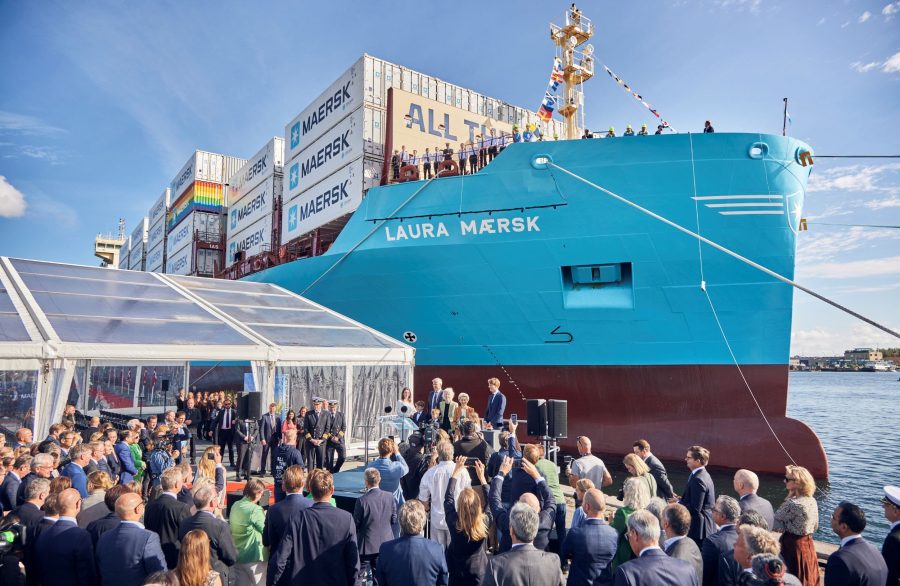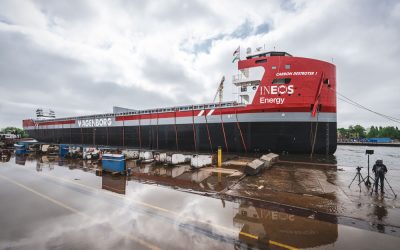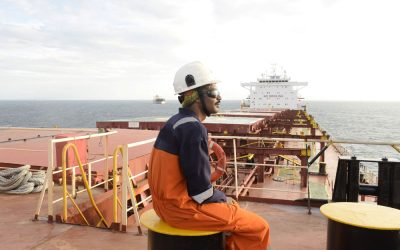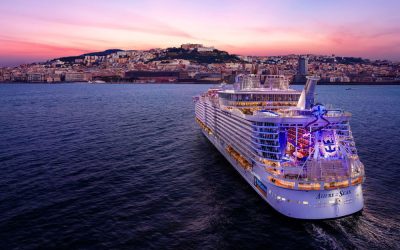By Malcolm Latarche, correspondent
Future fuels were a topic for much discussion throughout September with both DNV and Lloyd’s Register publishing studies on the subject, Maersk naming the world’s first methanol-fuelled container ship and entering into partnership with Equinor to secure a supply of green methanol and it also being a theme of the London International Shipping Week (LISW) during the middle of the month.
The question of future and alternative fuels is a fraught one and there are probably as many opinions on how things will pan out as there are decision makers within the maritime industry. From the environmentalists’ point of view and similarly from some in the industry as well, financial incentives – or more accurately disincentives – are the answer. Tax shipping for being a dirty industry and it will clean up goes the argument. Except perhaps it probably will not.
It is a widely held view that people power and action by ‘green’ leaders among cargo interests to use only ships that can show a lower carbon footprint will encourage shipowners to decarbonise at a more rapid rate. The more pragmatic view is that while organisations like to trumpet green credentials, their own customers want things to be sold – and therefore moved across oceans – at the lowest possible cost. It is the latter view or something akin to it that seems to be gaining the upper hand in many countries as people and politicians start to question the economic cost and popularity of green measures.
Maersk’s christening of its new feeder vessel Laura Maersk by EU President Ursula von der Leyen was a publicity success and another demonstration by Maersk of its willingness to innovate. It has previously looked at biofuels and has stated that methanol is a stepping stone to ammonia in its long-term strategy. However, Maersk’s plan to potentially convert or have built over 170 ships powered by methanol revealed the size of the problem facing shipping.
Before the christening of Laura Maersk, an agreement was signed between the owner and Norwegian energy company Equinor for a secure supply of green methanol during the initial months of operation from September 2023 and into the first half of 2024. Long term the plan is for the ships to run on e-methanol produced in Denmark. By 2030, Maersk will need approximately five million tons of green fuels for its ships and today’s global production of green methanol is below 100,000 tons. And Maersk is only one owner. There are already several vessels running on methanol and more in the pipeline for other owners. COSCO has 12 methanol-fuelled mega container ships on order and Wilhelmsen has the same number of PCTCs on order.
The studies produced by the two classification societies reveal some interesting facts that may have been overlooked in the push for shipping to decarbonise. In the foreword to the DNV report Maritime Forecast to 2050, DNV Maritime CEO Knut Ørbeck-Nilssen highlighted that “meeting the IMO GHG goal for 2030 will require shipping to secure 30–40% of the estimated annual global supply of carbon-neutral fuels by then – a daunting, nearly impossible task considering that other sectors will compete for the same fuel supply”.
Lloyd’s Register’s The future of maritime fuels. What you need to know carries a similar warning about another highly tipped future fuel ammonia. It says, e-ammonia emerges as the most highly adopted maritime fuel in the long term – on average the market share of e-ammonia is 35% in 2050. However, there is a large variation across the scenarios because of the different assumptions on future prices and the ability to scale fuel infrastructure at the required pace. Most of the scenarios provide a range between 20% and 50% of the market, while the most optimistic outlier scenario projects a market share for e-ammonia of approximately 80% by 2050.
This would make the shipping industry the largest user of ammonia relative to other sectors (such as fertiliser and power generation). What also has to be considered is that shipowners are not in a position to dictate the scale of non-fossil fuel production and except in a few rare cases neither are national governments.






